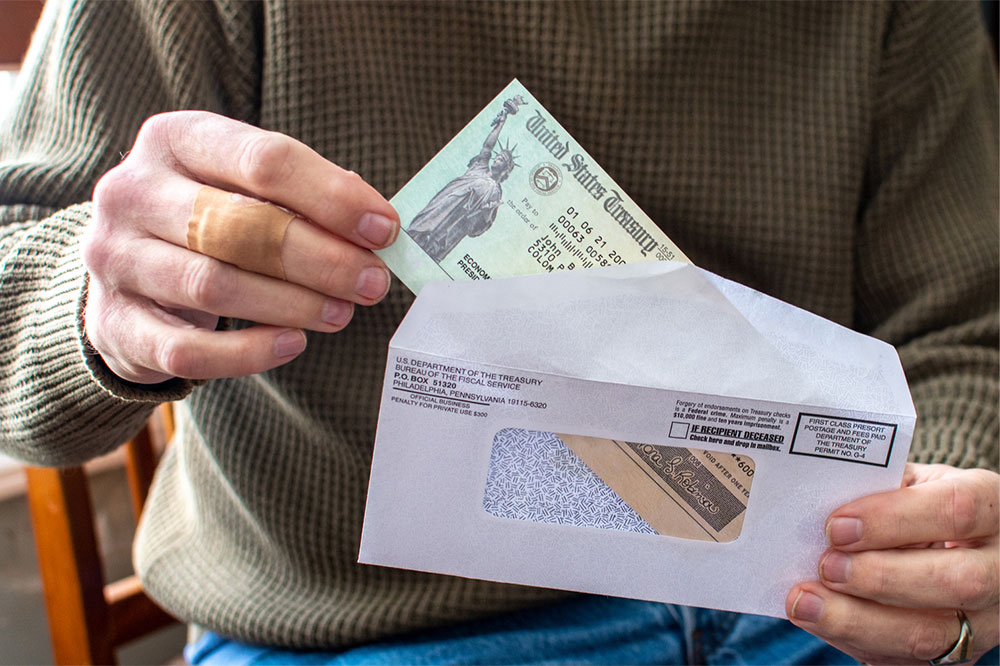Everything to Know About Stimulus Checks
Stimulus checks are direct payments made by the government to certain taxpayers to enhance their spending power. They help boost the economy, especially in times of uncertainty, when unprecedented crises can reduce consumer spending and affect the health of the economy. So, these checks help increase people’s confidence and encourage them to spend wisely. In recent crises, the IRS has quickly responded to the challenges and issued stimulus checks for its citizens.

Understanding stimulus checks
Unlike tax credits, which come in the form of deductions derived from taxes during tax filing, stimulus checks are designed to provide immediate relief to taxpayers, encouraging stability during the time of economic downturn. So, the federal government initiates relief packages during economic crises like the Great Recession of 2008 and the COVID-19 pandemic. Between March 2020 and March 2021, the government sent families three rounds of these direct payments to provide economic relief from the hardships brought on by the pandemic, whose sudden onset continues to impact the people as they face unemployment and poverty. The idea is to provide maximum relief to low-income households.
Brief history
February 2008 : According to the Economic Stimulus Act of 2008, payments worth $120 billion were made to taxpayers starting from May 2008 under the administration of then-president George W. Bush. Individuals received up to $600, spouses could get $1200, and couples with children received $300.
February 2009 : Congress signed the ARRA Act and issued $250 checks for eligible individuals, with a total of $14.2 billion. Some recipients received one-time payments, while most taxpayers received a reduction in their income tax. Under this payment round, the tax cut was either reduced or entirely eliminated for individuals with an income of more than $75,000 and for couples who earn more than $150,000.
March 2020 : In March, Congress included the checks in the CARES Act, which called for a $2 trillion stimulus package to help the people affected by the COVID-19 pandemic. Under this round, a $1200 check was sent to individuals and $2400 to couples. Eligible families received an additional $500 for every dependent child.
December 2020: On December 27, a supplemental appropriations bill was signed into law, leading to another round of direct payments of $600 for individuals, $1200 for couples, and $600 for every dependent child in the family. The IRS stimulus checks began being sent out on December 29.
March 2021: Under ARPA—a $1.9 trillion stimulus check plan—$1400 was sent out to people starting from mid-March. The payment was reduced in increments for single citizens earning $75,000–80,000, heads of households earning $112,500–$120,000, and joint filers earning around $150,000–$160,000. People in these categories earning less than the lower limits (i.e., $75,000, $112,500, and 150,000) received the full payment of $1400.
How to utilize stimulus checks?
Every individual’s financial situation is unique, so it is important to devise a customized plan to spend these checks carefully. Here are some effective ways to use the payments:
Open a savings account : A high-yielding savings account could help families during unpredictable situations. Recipients can set some money aside for children’s education, a trip, or other future expenses. One may also choose to add the entire payment to the savings accounts, ensuring that they have sufficient funds to cover the expenses at least for three months.
Refinance the mortgage : While receiving the checks, it is important to cut down on unwanted costs wherever possible. Opting for mortgage refinancing can save interest per month, saving people thousands of dollars in the long run.
Clear debt : If already employed and comfortable with the existing amount in the savings account, one should focus on paying off their debts that come with high interest rates. This could include loans or credit card debts. Further, debt repayment is a good way to increase one’s credit score.
What’s next?
Last year, experts indicated that people should not expect Congress to approve a fourth round of COVID-19 payments (i.e., stimulus checks 2022) as the economy is doing much better. In May 2020, the country added 17.4 million jobs, indicating that the next round of direct payments could be expected if there is another recession. However, some residents can receive state-issued stimulus checks to help them cope with the COVID-19 effects on inflation.
The overall effectiveness of these payments is still a topic of significant debate. The ultimate goal of the checks is to restore the stability of the economy of the country by inspiring consumer confidence and increasing essential spending. However, the long-term effects of these checks, whether this spending is effective, and if it generates returns that outweigh expenditure are being questioned. Nevertheless, this form of economic stimuli has gained more popularity recently with the release of four diffident checks between 2008–2021.